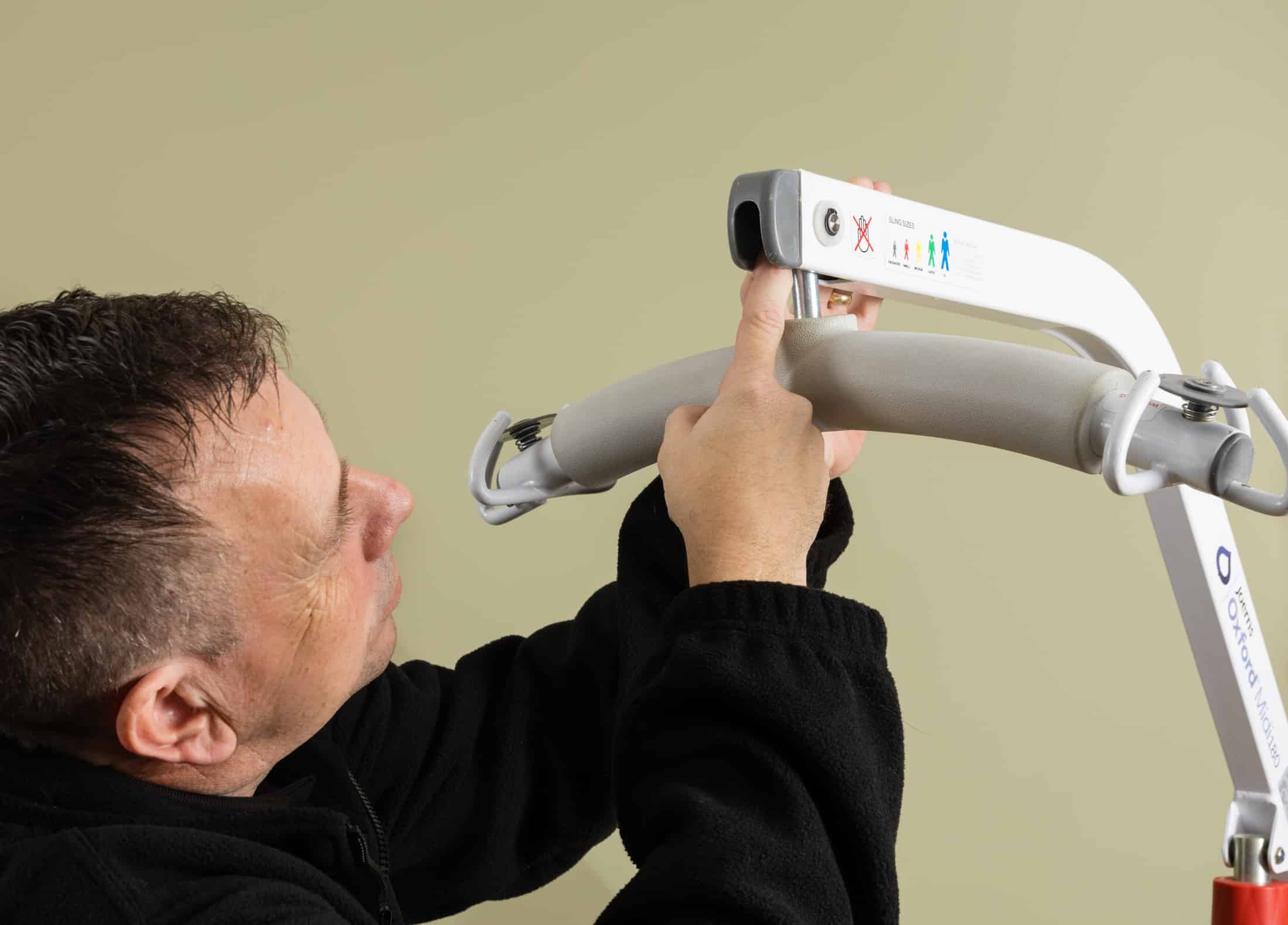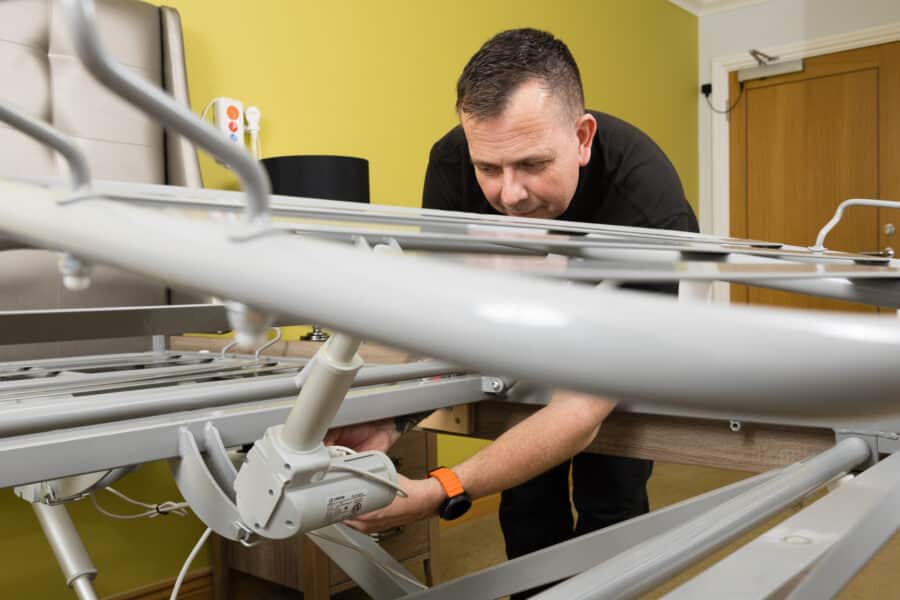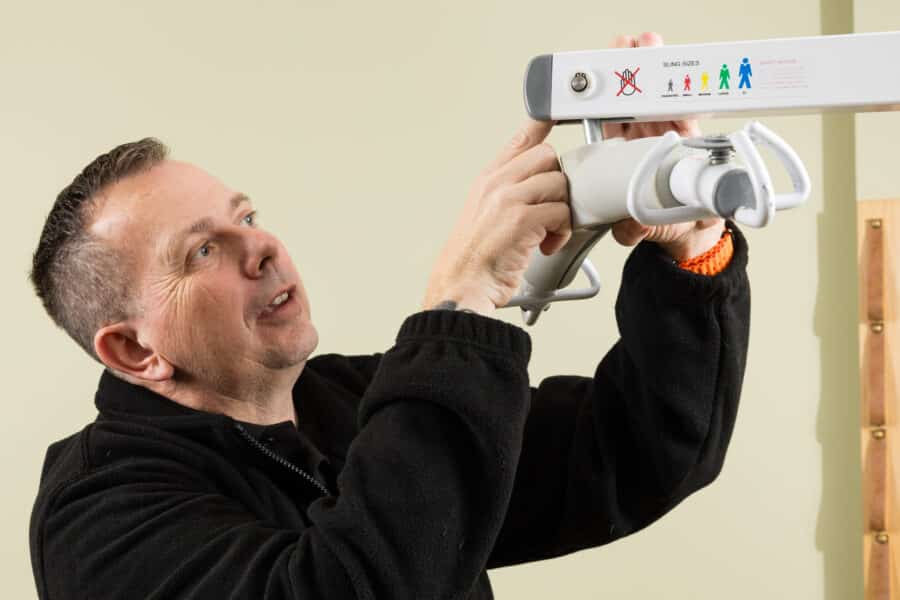If you work in a care home, it’s essential to understand and follow care home LOLER regulations. These legal requirements exist to protect both residents and staff by ensuring the safe use of lifting equipment such as hoists, slings, and stand aids. In this post, we’ll clearly explain what LOLER is, who it affects, and—most importantly—how your care home can stay fully compliant.
What are Care Home LOLER Regulations?
LOLER stands for the Lifting Operations and Lifting Equipment Regulations 1998—a key piece of UK legislation designed to ensure that lifting equipment is both safe to use and properly maintained. In care homes, these regulations apply specifically to patient lifting equipment, including:
-
Mobile hoists
-
Ceiling track hoists
-
Stand aids
-
Bath lifts
Why are Care Home LOLER Regulations important?
In care environments, staff rely on lifting equipment daily to move residents safely and with dignity. However, when this equipment isn’t properly maintained, inspected, or shows signs of wear and tear, the consequences can be serious. These risks include injuries to both residents and staff, potential legal action, and negative outcomes during CQC inspections.
Click here for more information on LOLER importance.
To help prevent such incidents, LOLER regulations require care homes to carry out regular inspections and servicing as a legal obligation—not just best practice.
What does LOLER require?
If you’re responsible for managing equipment in a care home, staying on top of LOLER requirements is a key part of your role. To remain compliant, you need to make sure that:
-
All lifting equipment used for moving people is thoroughly examined at least every six months by a competent person
-
Accessories such as slings are also inspected every six months
-
Inspection and servicing records are kept up to date and easily accessible for review
-
Any equipment found to be unsafe is removed from use immediately
These essential checks must be completed in addition to any routine maintenance carried out by your internal team. Typically, a “competent person” refers to an external specialist who is qualified and trained specifically in LOLER inspections.
How often should hoists and slings be inspected?
To comply with care home LOLER regulations, it’s essential to follow a regular inspection schedule for all lifting equipment used in your care home. Here’s what’s required:
-
Patient hoists: Every 6 months
-
Slings and lifting accessories: Every 6 months
-
Lifting equipment not used to move people (e.g. certain trolleys): Every 12 months, depending on usage
Skipping these inspections doesn’t just increase the risk of injury—it can also result in enforcement action from the Health and Safety Executive (HSE) or a negative assessment from the Care Quality Commission (CQC).
What happens during a LOLER inspection?
A LOLER inspection—also known as a thorough examination—is designed to assess whether your lifting equipment is safe, functional, and legally compliant. During the inspection, a qualified engineer will typically carry out:
-
Visual checks for wear, damage, or corrosion
-
Functional tests to confirm proper movement and braking
-
Inspection of safety features such as emergency stops and controls
-
Review of maintenance logs and previous inspection records
-
Issuance of a LOLER inspection certificate confirming compliance
These steps help identify issues early and ensure that all equipment meets safety standards before further use.
How can your care home stay compliant with LOLER?
To maintain compliance and keep both residents and staff safe, your care home should:
-
Maintain a LOLER inspection schedule to ensure timely checks
-
Use trained, qualified engineers who are experienced in LOLER assessments
-
Keep clear and accurate records of all inspections, servicing, and repairs
-
Take immediate action on any equipment found to be unsafe or non-compliant
Proactive planning, proper documentation, and working with a trusted inspection provider can make LOLER compliance a straightforward part of your safety routine. Don’t forget about slings! They’re an important piece of compliance as well, click here to learn more.
Want some specific information about care home LOLER regulations??
At Able Healthcare Solutions, we specialise in LOLER testing and care home equipment servicing. Our experienced engineers carry out thorough inspections in line with the latest legislation, providing full certification and peace of mind. Get a free consultation for your home by filling out the form below and ensure your staff and residents are safe and compliant.
Care Home LOLER Regulation FAQ’s
How often should hoists and slings be inspected in a care home?
Hoists and slings used to lift or move residents must be inspected every six months by a competent person. Equipment not used for people, such as certain trolleys, is usually inspected every 12 months depending on use.
Who can carry out a LOLER inspection?
A LOLER inspection must be completed by a competent person—usually an external qualified engineer with specific training and expertise in LOLER examinations.
What happens if a care home doesn’t comply with LOLER regulations?
Failing to comply can lead to accidents, legal action, enforcement notices from the HSE, and negative outcomes in Care Quality Commission (CQC) inspections.
What happens during a LOLER inspection?
An engineer will carry out visual checks, functional tests, inspect safety features, review maintenance logs, and issue a LOLER inspection certificate if the equipment is safe and compliant.
Do LOLER regulations cover slings?
Yes. Slings are considered lifting accessories and must be inspected every six months along with hoists to ensure they remain safe and compliant.
Why are LOLER regulations important in care homes?
They protect residents and staff from injuries, ensure equipment works safely, help care homes stay legally compliant, and support positive outcomes during inspections.
How often should hoists and slings be inspected in a care home?
Hoists and slings used to lift or move residents must be inspected every six months by a competent person. Equipment not used for people, such as certain trolleys, is usually inspected every 12 months depending on use.
Who can carry out a LOLER inspection?
A LOLER inspection must be completed by a competent person—usually an external qualified engineer with specific training and expertise in LOLER examinations.
What happens if a care home doesn’t comply with LOLER regulations?
Failing to comply can lead to accidents, legal action, enforcement notices from the HSE, and negative outcomes in Care Quality Commission (CQC) inspections.
What happens during a LOLER inspection?
An engineer will carry out visual checks, functional tests, inspect safety features, review maintenance logs, and issue a LOLER inspection certificate if the equipment is safe and compliant.
Do LOLER regulations cover slings?
Yes. Slings are considered lifting accessories and must be inspected every six months along with hoists to ensure they remain safe and compliant.
Why are LOLER regulations important in care homes?
They protect residents and staff from injuries, ensure equipment works safely, help care homes stay legally compliant, and support positive outcomes during inspections.






